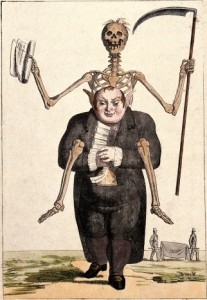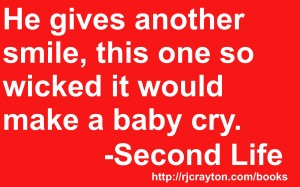
I mentioned that over the weekend I attended the Virginia Festival of the Book. If you’re into books, authors or publishing in general, I’d definitely recommend you go in the future. The nice thing about the conference is it’s mostly free (there are some food-involving sessions–lunches and brunches– that require a fee, but the sessions are overwhelmingly gratis).
I went to Saturday’s sessions, which focused on publishing. I’ve got some more publishing-related stuff running on Indies Unlimited next week, but I thought I’d look at some of the more interesting things that were said at the session on trends in publishing, featuring Jane Friedman. She’s the former publisher of Writers Digest, a University of Virginia professor and writer of a provocative blog on digital publishing issues.
On publishers, Friedman said, “The gatekeeping function is totally broken. Gatekeeping is over.”
While perhaps this has been obvious to anyone watching the prevalence of self-publishing, I found the succinctness of it powerful. (So powerful, in fact, that in my mind, I equated over with dead–hence the headline. Having attended the session and felt the vibe and tenor of the message, I don’t think it’s a stretch of a headline to say dead.) Publishers, who once felt they had the keys to the castle of publishing, no longer have de facto control over who and what gets published. (I said de facto, because while you could self publish 20 years ago, you didn’t have distribution; with Amazon.com, the little guy has distribution, too.)
Friedman added, “The value of publishers has been called into a question. There is a really great article by Evan Hughes, [where he says] the only necessary players in the game are the author and the reader.”
Just the author and the reader. That sounds like a really cozy relationship.
At the session, Friedman also reminded authors that publishers have never been in the business of selling books to readers. Ultimately, that’s where books end up, but even now, publishers focus on selling books to businesses that get books to readers, including bookstores (brick-and-mortar as well as online) and libraries. So, looking to them for advice on reaching readers is probably not the best idea (that’s my thought, based on what she said, not anything she said directly at the session; though, based on what she said, I’m not sure what other conclusion could be drawn).
Another cool thing she said is that one advantage of self publishing is that you get to be in it for the long-haul. Traditional publishing is very “front-list oriented,” where they’re only promoting books that have just come out. If a book doesn’t perform well, they just forget about it–and possibly the author. “Authors have found a book’s profitability doesn’t stop after the first three months it is on sale,” Friedman said. “You’ll always have new people interested in going back to your backlist sale. [With self publishing] there isn’t as much pressure to perform after a book launch.”
Friedman noted there was an overall downward trend in book prices. They’re dropping, which concerns many in the publishing industry.
She also mentioned the site Wattpad, which focuses on the serialization of novels for free. People tend to upload a chapter at a time and release one a week to build audience, Friedman said. The thing that surprised me in her Wattpad comments were the sheer size of the community. “Wattpad has more than 20 million readers, which rivals goodreads. They have one writer for every 9 readers.”
There’s been a lot of talk about self publishing changing the nature of traditional publishing. And while Friedman acknowledges that change will come, she doesn’t think it will come from those at the top in traditional publishing. “It’s very hard to change in a way that would drop profits,” she says. “It involves creative destruction. They have to start blowing stuff up in order to change.”
And right now, publishing is profitable, especially on ebooks, which only pay a 25 percent royalty to authors. Yet, authors are still showing up at publishers’ doors for those meager rates. “They always have someone else in line who is willing to take the deal,” Friedman said. For publishers to change, “More big name authors have to step away.”
I’ll have one more post on this site about the festival, and a post on Monday on Indies Unlimited about some specific marketing techniques people Friedman and others recommended at the conference (Friedman’s thoughts on free, that ever controversial topic, may surprise you). And since I just mentioned IU, if you’re an author, IU is offering one free advertising spot on it’s site. Check out this post for all the details.
Finally, I promised I’d be doing some Second Life promotion this week. Here’s a little quote from Second Life ( which is still 99 cents on Amazon).

I think I may have to check out Wattpad.
Great post. So encouraging and full of informations. Thanks.
Glad it was helpful. It was an interesting session. I hadn’t realized Wattpad had so many users.
Great article.
I’ve read that the author’s who do best financially are hybrid authors, so I guess pounding on the publishing house door and getting them to publish that one novel for you isn’t a bad idea–and 25% royalties might be better than the 0% royalties you get from WattPadd. But WattPadd, FictionPress, Fanfiction.net, and AO3 might get you more constructive criticism and feedback.
Yeah, the publishers are a bit stingy with the profits. I guess that makes sense for the shareholders, but not necessarily authors. I think Friedman is right on when she says there are so many authors out there willing to step up and take it. I think people who take traditional deals should make sure it’s a good deal for both them and the publisher. One woman in the audience at a session with Friedman said she moved from indie to a traditional publisher and was really disappointed by the level of support. As an indie using KDP, she had worldwide ebook distribution. Her traditional publisher, even though it bought world rights, wasn’t publishing electronically in all countries and she’d get emails from fans who used to get her work and now couldn’t. It got to the point where she was telling people in certain countries which pirate sites had her work.
I think the reason surveys find hybrid authors are making the most money is because they get the benefit of the in-store penetration, which indie authors don’t. A person who generally buys in the bookstores sees them there, then goes online and finds all their other stuff, too. Though, many people are plenty successful doing just indie books.